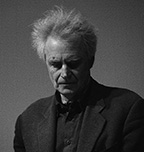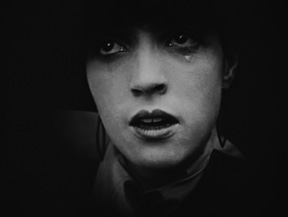Juror
Thom Andersen
 [Juror’s Statement]
[Juror’s Statement]
Like any attentive viewer, I am hoping for a shock of recognition, the familiar made unfamiliar. An alienation effect, it’s sometimes called. Simply: I walk out of the cinema, and the world looks a little different, as if washed by a rain and turned around a bit. Something known has been acknowledged, something so obvious that it’s invisible. As Kieslowski noted, you have to make a description so that we can talk about something that is obvious but hasn’t been acknowledged, and we have to talk about it so that we can change it. I make films because I feel that something isn’t right, something is gnawing at me. Perhaps I can make a discovery and share it with others, my friends, my co-conspirators.
Thom Andersen has lived in Los Angeles for most of his life. In the 1960s, he made short films, including Melting (1965), Olivia’s Place (1966), and --- ------- (1967, with Malcolm Brodwick). In 1974 he completed Eadweard Muybridge, Zoopraxographer, an hour-long documentary film about Muybridge’s photographic work. It was restored by the UCLA Film and Television Archive in 2013. In 1995, with Noël Burch, he completed Red Hollywood, a critical video essay about the film works created by the victims of the Hollywood Blacklist. Their work on the history of the Blacklist also produced a book, Les Communistes de Hollywood: Autre chose que des martyrs, published in 1994. In 2003 he completed Los Angeles Plays Itself (2003), a three hour-long movie about the representation of Los Angeles in movies. It was voted one of the fifty best documentaries ever made in a Sight & Sound critics’ poll. In 2010, he completed Get Out of the Car, a short 16mm portrait of Los Angeles. In 2012, he directed Reconversão, an HD video about the work of Portuguese architect Eduardo Souto de Moura, the winner of the Pritzker Prize in 2011. He has taught at the California Institute of the Arts since 1987.
The Thoughts that Once We Had
 USA / 2015 / English, Chinese, French, German, Italian, etc. / Color, B&W / Blu-ray / 108 min
USA / 2015 / English, Chinese, French, German, Italian, etc. / Color, B&W / Blu-ray / 108 min
Director, Producer: Thom Andersen
Editing: Andrew Kim
Contributing Editor: Christine Chang
Typography: Lucas Quigley
Source: Thom Andersen
An attempt to reexamine the history of film using the concept of the “affection-image” presented in Deleuze’s masterpiece Cinema. A genealogy of images that cause deep emotional turmoil, through a never-ending parade of film excerpts. Some surprise and agitate, with engrossing close-ups, slapstick comedy, and depictions of violence from crime movies. There are also scrupulously depicted nuclear horror stories and tragedies of war. The power to communicate action and the power to communicate catastrophe appear to be in conflict. Can both powers be realized at the same time? In seeking to isolate the American juncture in film, the full extent of film history—from Griffith to Godard, from Cassavetes to Pedro Costa—is traversed.
